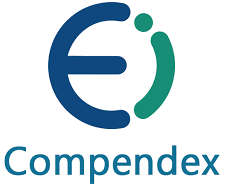Recycling Decision Analysis of Power Battery Third-party Recyclers Considering Government Rewards and Punishments
Abstract
The booming development of new energy vehicles has brought a continuous increase in the de-mand for power batteries and the amount of scrap. A closed-loop supply chain consisting of one manufacturer, one downstream seller and one third-party recycler is constructed. Then the influ-ence of the government rewards and punishments policy and the proportion of responsibility sharing to achieve the coordination of the closed-loop supply chain are studied. The results show that: (1) When the government does not interfere in the recycling of the closed-loop supply chain, the total market profit of power battery under the decentralized decision is always lower than that under the centralized decision. (2) The change of rewards and punishments ratio under the recy-cling channel of the third-party recyclers does not affect the retail price in the consumer market. (3) Under the government’s policy, the market recovery rate is lowest and the wholesale price is highest when the downstream seller shares the recycling responsibility with the manufacturer. (4) Under certain conditions, the intervention of the government rewards and punishments mechanism will improve the overall profit of the closed-loop supply chain system and the market recovery rate, and finally realize the Pareto improvement of the power battery closed-loop supply chain.




